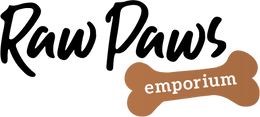Raw foods for dogs have gained a lot of popularity in recent years. After understanding the benefits, you would think that pet owners would make the switch instantly. Yet that’s not the case. Many dog parents are concerned about the well-being of their fur babies and hesitate to feed them a raw diet. The main reason for this hesitancy is because of the many myths about raw food that circulate on the internet.
If you’re in a similar boat but what to learn about the facts rather than just believing the myths, you’ve come to the right place. We have compiled a list of the most widely believed myths and facts about raw dog food.
Myths vs Facts
Here is a list of the most common myths about raw food that pet parents easily believe:
1. Only Dry Food is Sufficient for Providing Nutrition to Dogs
Many pet owners believe that dry food is the best source of nutrition for their dogs. But this is a complete myth with zero truth. On the contrary, raw foods are pretty bad for your dog’s health. Not only are they overly processed, but they also contain many filler ingredients that your dog doesn’t need. As a result, their body takes more time to absorb nutrients, and the stool volume increases, along with the odour. Raw food is known for causing allergies, obesity, diabetes, and even cancer.
Fact: The truth is that your dog can get a well-balanced meal with a raw diet. Not only does it fill your dog’s daily nutritional requirements, but it also allows their body to absorb nutrients. And since most of the food is nutrient-rich, only small quantities are flushed out of the body, resulting in less stool volume.
2. Raw Food Causes Salmonella
One of the most known facts about raw dog food is that it contains bacteria. While it may contain bacteria that may be harmful to your health, it’s not at all dangerous for dogs. And if you’re careful when handling raw foods, they do not harm you or your family.
Fact: When dogs are living in the wild, they only eat raw foods. Their bodies are designed to handle bacteria, mainly because their stomach has a highly acidic pH which can kill off disease-causing organisms. And dogs have access to many other things besides raw food that contain far more bacteria and remain just fine. Moreover, commercial raw diets are tested for salmonella and other bacterial diseases to ensure your dog gets a safe and healthy feed.
3. Feeding Raw Bones to Dogs is Dangerous
Many believe eating raw bones turns dogs aggressive or negatively affects their health. When the truth is that cooked bones are the real threat. Not only do they splinter, but they can also damage your doggo’s teeth and cause intestinal blockages or choking.
Fact: Raw bones are an excellent source of calcium and help maintain oral hygiene. Moreover, they are completely safe, chewable, and easy to digest. However, finding the right-sized bone is essential, as feeding a large dog a really small bone may pose a choking hazard.
4. Cooked Diets are Better than Raw Food
While cooked foods are better than kibble, they do not offer the same level of nutrition that a raw diet can give.
Fact: Heat application during the cooking process causes nutrition loss. The resulting food may not have all the nutrients you might think you’re offering your dog. On the other hand, a purely raw diet is packed with all your dog’s nutritional requirements, ensuring they get their fill of a healthy meal every day. A raw diet is made up of 80% meat, 10% organs, and 10% bone, supplemented with fruits and vegetables.
Bursting the Bubble
After reading the myths and facts about raw dog food, we hope that all your misconceptions are cleared. A raw diet is the best way to ensure your pup gets all the nutrients they need for a healthy and long life. It is the diet that mother nature chose for them, and countless dogs living in the wild survive on raw food, so why can’t home dogs do the same? On the other hand, kibble is the number one cause of health diseases in canines.
Switch to a raw diet today. Get high-quality raw food from Raw Paws Emporium. We only sell products that have been registered under DEFRA. Call 01707 952160 for more details.








